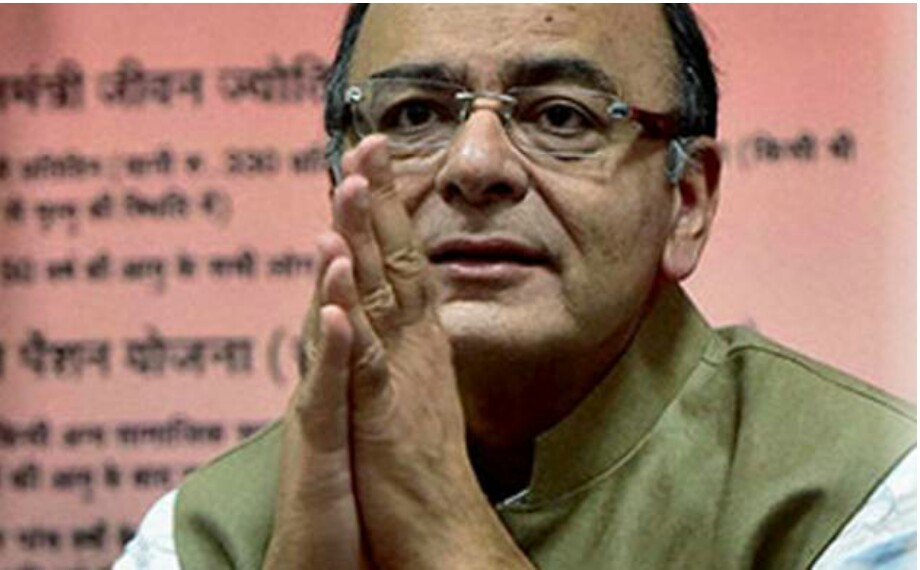GST Bill: Some More Battles Ahead

NEW DELHI: The GST Bill is actually the Constitution (One Hundred and Twenty second Amendment) Bill, 2014.
It is an enabling amendment to the Constitution to permit the introduction of a single goods and service tax for the entire country, and to consign to history the myriad taxes and maze of laws enacted by the central and state governments to ostensibly raise revenues.
There is much euphoria that this GST Bill has now been approved by the Congress Party and hence be deemed for all practical purposes to be passed by the Rajya Sabha.
This was the bone in the NDA’s craw having become the litmus test of the Modi government’s ability to carry the “reforms” process forward. The sigh of relief is palpable and there is much euphoria in the circles that matter and optimism that the slowed down GDP train will gather speed again?
But is this euphoria and optimism justified? It causes one to recall Communist Party’s favored slogan of defiance: “Abhi tho yeh angdai hai, aage aur bhi ladai hai!” (This is just the turn; there are many battles ahead.). Indeed there are. We have just rounded a bend.
The BJP’s electoral victory in 2014 gave it the courage or gumption to reverse its hitherto opposition to the GST Bill introduced in Parliament by the Congress led UPA government in 2013. The UPA’s endeavor to have the Bill passed failed when several states, especially the ones ruled by the BJP, opposed it.
The then Gujarat chief minister, Narendra Modi, was most vehement in his opposition to the Bill; as to him at that time it vitiated his conception of federalism. The legislation lapsed with the dissolution of the 15th Lok Sabha. The GST Bill was once again introduced by the Modi government and quickly passed by the Lok Sabha.
No sooner Narendra Modi became Prime Minister, he adopted UPA’s GST Bill, like many of its reforms like Aadhar and Direct Benefit Transfer and dropped his opposition to others such as the Nuclear Liability Law.
This only fitted into a pattern of appropriating not just the Congress Party’s history and totems but also its policies. The UPA’s inability to pass the GST Bill added significantly to the notion that it could not deliver on reforms any more. It was the aggrieved Congress Party’s turn to now spite the BJP in its new monogrammed reformist suit. The country lost two more years as the two big national parties bickered. That phase seems to have now ended.
The Congress made three demands to offer its support to GST. They were that a GST rate of 18% be written into in the Constitution; that there be a separate and independent dispute resolution mechanism preferably headed by a High Court judge; that the one percent inter state levy proposed in the BJP’s GST Bill be dropped.
Even though the Congress dropped its first demand, the CPM’s Sitaram Yechury spoke in the house supporting this constitutional cap to “protect the common man.” It will be interesting to know if Comrade Yechury’s party will likewise consider supporting the writing of a cap on unmerited subsidies in the Constitution?
But there is a road ahead to traverse before GST becomes reality. After the Rajya Sabha passes the Bill, it will go back to the Lok Sabha where the amendments negotiated by the Congress are to be discussed and approved. One can foresee no problem here, but there is a legislative process and that always takes some time even with the best of intentions and steamroller majorities.
The Bill then has to do the modern Ashwamedha ritual. It will be sent to the state legislatures for their clearance and to become law it has to be passed by at least fifteen of the thirty-one states.
In a country where the future is as uncertain as the past, events have a way of sometimes suddenly cascading into a gridlock. Between now and mid 2017 there are several state elections due the results of which can tax the national mood towards regression rather than reform.
Already Tamil Nadu is opposed to the GST Bill, which it sees as an infringement of state rights and assault on its notion of an India being a federation of states. The CPI(M’)s (two states) Sitaram Yechury has already signaled his unhappiness with some of the provisions. The Bombay centric Shiv Sena is opposed to the perceived loss of octroi revenue to India’s richest municipal corporation that it has long controlled and mulcted. How long will it wait before it pulls the rug from underneath the Fadnavis government?
Who wins in Punjab, Goa and Gujarat are also now considered toss-ups. This bill has to run the gauntlet of regional nationalism and come out unscathed. It doesn’t seem improbable, but the gauntlet must be run.
Sixteen years have gone by since the idea of a nationwide GST began its rounds. In a country, which has among the world’s highest interest, rates, and low Tax to GDP ratio the length of time implies exponential costs. The delay has certainly cost us much. It is speculated that the GST Bill as law will add to India’s GDP by as much as 1-1.5% annually. For it is now generally agreed that the GST Bill will reduce the incidence of taxation, increase tax revenues and reduce corruption by eliminating complex paperwork and scope for arbitrary and discretionary decisions.
But there is an innate genius in India’s bureaucracy to stall and find new ways to better individual means. The GST Bill is just another swallow and that doesn’t necessarily herald the arrival of another spring. India still awaits a swarm of swallows to know that the reform spring is here. Introducing a broad spectrum of economic, administrative and political reforms calls for both appetite and stamina. How much of either is left after this last debilitating process is to seen?



